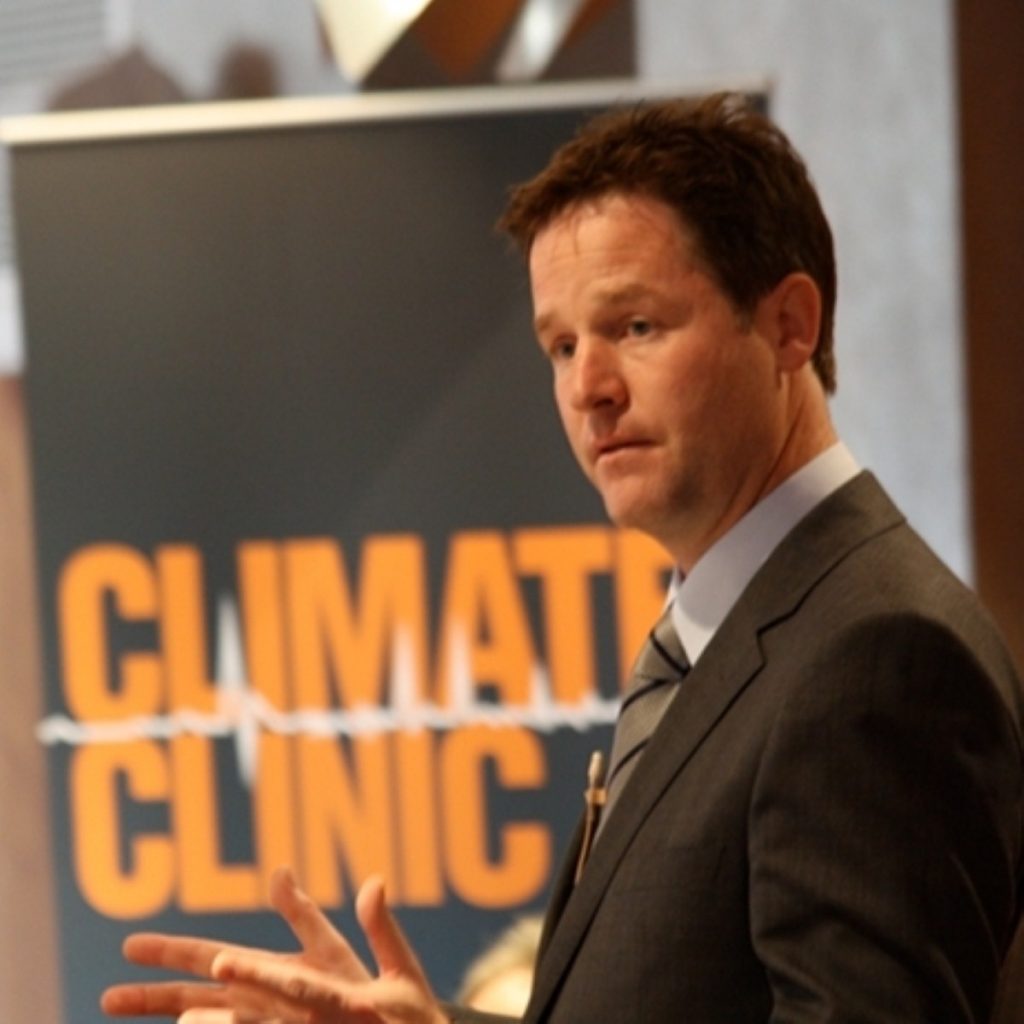Analysis: Clegg can’t erase deficit doubts
When it comes to giving the public reassurance on spending cuts, Nick Clegg manages to raise more questions than he answers.
This is strange because the Liberal Democrats recognise the election will be dominated by fears about the uncertain economic future.
On the face of it Clegg’s determination to move the debate on from David Cameron’s ‘honest’ approach to be open about the need for spending cuts is impressive.


His focus in a speech to City folk this morning was on winning over the wider public – a ‘hearts and minds’ approach to public spending which, he said, had worked terribly well under Canada’s Liberal government of the 1990s.
Hard-talking Clegg stands up to City
“We have to ease the pain,” Clegg pressed. “We have to make sure people are bought into, not alienated by, the process of deficit reduction.”
That’s why the party plans to hold a grand consultation if it wins power, spending the summer and autumn asking the public – especially civil servants – which portions of public spending should be for the chop.
Just in case the public isn’t keen on the need for these cuts, Clegg has a trump card up his sleeve. “If all people hear is austerity and cuts, they will lose hope,” he explained. That’s why the Lib Dems are proposing to stop taxing all income under £10,000.
It’s something of a “grand bargain” – even if he rather awkwardly admitted afterwards there isn’t a “direct connection” between the two.
Put your questions to Nick Clegg
The real issue lies in the proposals behind the cuts to come.
Clegg has devised a huge get-out clause which allows his party to escape from laying out the full extent of the cuts needed.
In order to sort out the deficit, he said, £80 billion of savings must be found from somewhere.
The Lib Dems will only be identifying £15 billion of these before the general election. Another £15 billion will be required in the next parliament and a further £40 billion in the run-up to 2018.
The vast bulk of the cuts, therefore, will have to be worked out later rather than sooner. Like Labour and the Conservatives, the Lib Dems realise the need to balance maximum reassurance with a minimum of commitments.
Actually, it’s worse than that. These figures are based on both economic growth and the government’s 2018 timetable. “Liberal Democrats believe we may need to revisit both the timetable and the level of savings required,” Clegg added. Never before has anyone given themselves carte blanche to shift the goalposts with such aplomb.
Worsening borrowing conditions, halting growth and the size of the structural deficit are all excuses which can be used. However much Clegg may seek to quell the doubts, the truth is he can only go so far to address them.
Critics of the Lib Dem leader might point out that, when it comes to reassurance, the way he dealt with the more immediate concerns of his City audience did not amount to a masterclass in tact.
Clegg left himself open to accusations of ‘talking down the economy’ by comparing Britain’s “unique constellation of vulnerabilities” to those of Iceland.
He said “balance” had to be restored to reduce the influence of the financial service sector’s “vested interest”.
And he backed a “straightforward” ten per cent levy on the profits of all banks which had benefited from taxpayers’ money.
“We are by far the most trenchant and critical of what’s happened in the banking industry,” the Lib Dem leader said proudly. This was not reassurance at its best. Clegg’s approach highlights the limitations, as well as the advantages, of openness with the electorate.

